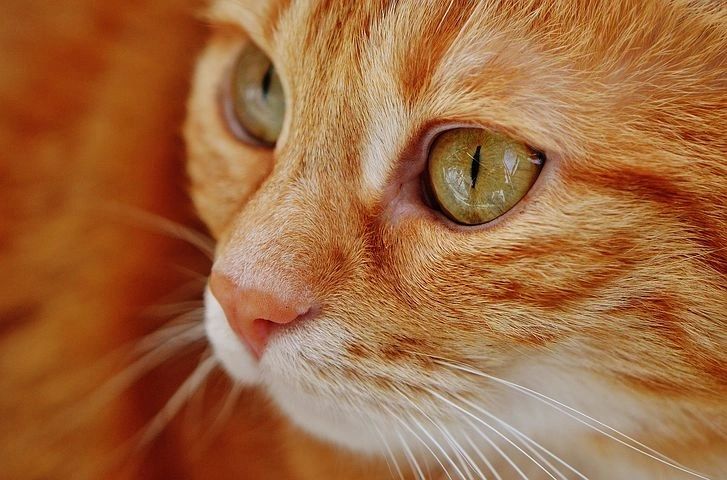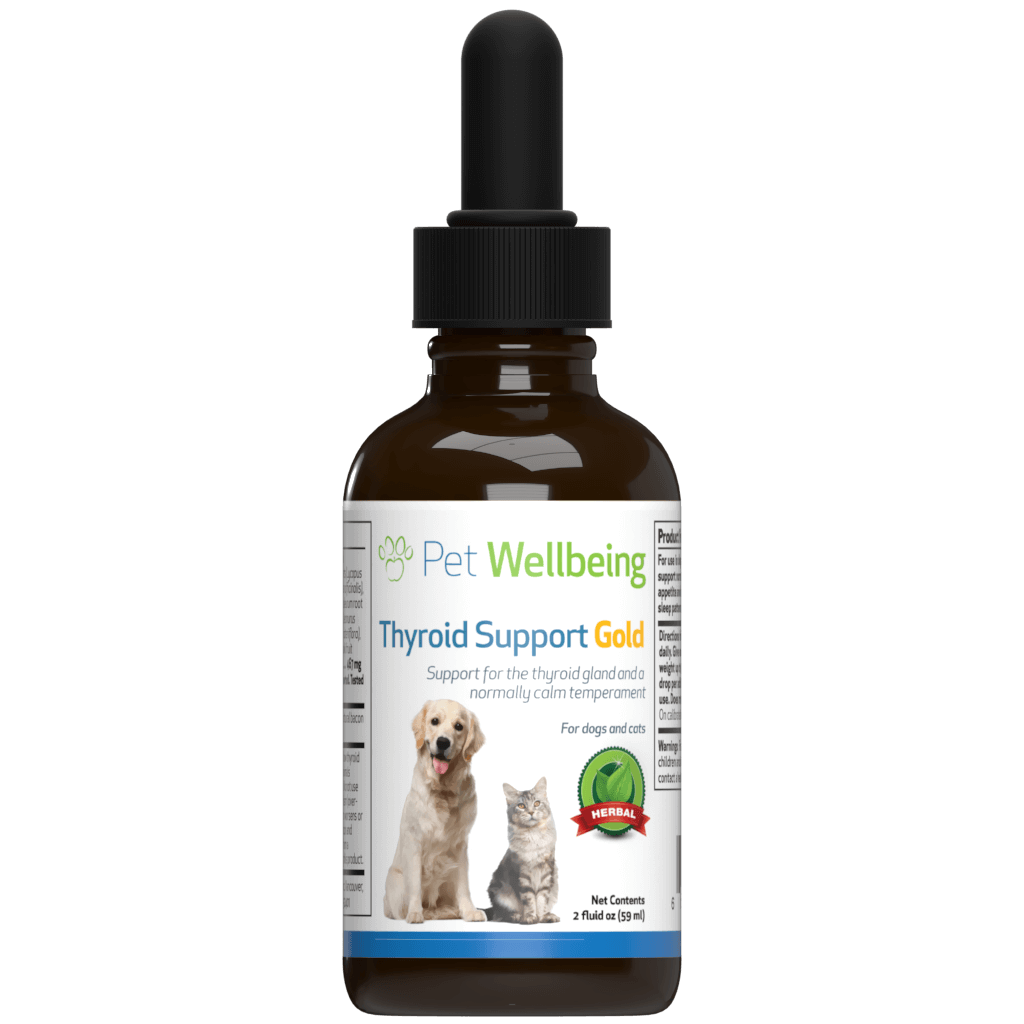Hi everyone, this is my first post. I'm grateful for this forum.
Charlie is one of the cats in my colony. My guess is he's about 12/13 years old. I've been feeding him for about 11 years. He is neutered, a domestic short hair, and 11.8 lbs.
He was just diagnosed with hyperthyroidism with T4 levels of 9.2. He had blood work done on 7/29/22 and his T4 levels were 4.3. I took him into the vet both times because he was having pain while eating and pawing at his mouth. He eats a raw food diet. He's never been vaccinated. He lives outside and may be exposed to toxins from neighbors yards.
Medical history:
It took me a long time to be able to trap him and he would show up with signs of having been fighting. I was finally about to trap him in 2017 when she showed up with open gashes on his legs. The vet sewed him up and found two of his canine teeth broken, one decayed, and one missing. The three canines were extracted. He was giving antibiotics and pain medication at that time. After this vet visit and being neutered, he slowly, over the past 5 years has shown more interest in being in relationship with me and the other family members who feed them (they get fed in a family member's back yard). We can now brush him and he enjoys spending time with us outside.
At the end of July 2022, Charlie started showing clear signs of mouth pain. I took him to the ER where they said he had a tooth fragment lodged in his gum. I was able to get him in to the vet that had done his previous surgery the next day. They removed the tooth fragment (said it could have been left over from the removal of the canines in 2017) and extracted a decayed molar. He was given antibiotics and pain medication. His blood work came back with T4 levels of 4.3. The vet said this was something to keep an eye on and indicated hyperthyroidism, but didn't prescribe medication at that time. I had the vet tip Charlie's ear and microchip him at this visit.
At the end of November, 2022, Charlie started showing signs of mouth pain again. I was able to get him into a different vet this time, who was not a good fit for us. He said Charlie had severe gingivitis, periodontal disease, and gum infection. He gave him a shot of steroids and antibiotics and said he needed to have his teeth cleaned. Charlie sometimes gets small scabs on his lower back along his spine and just laterally. I noticed they were present in November. They cleared up after the vet visit. When he has them, they don't seem to itch and he doesn't lick them.
At the beginning of January, Charlie started showing signs of mouth pain again and I took him back to the vet who did his two surgeries for a dental cleaning. The vet said his mouth looked good, no sign of issues, but that his blood work showed T4 levels of 9.2. He prescribed 2.5 mg methimazole 2x day to be applied topically to his ear. Because Charlie is not domesticated and lives in a colony, it's not guaranteed that he'll be dosed 2x a day and he won't be able to be dosed 12 hours apart (something the vet said was important). While Charlie likes to be brushed, getting to his ear 2x a day could be a crap shoot. Charlie was given antibiotics and pain medication.
I haven't noticed any changes in Charlie's behavior, mood, or energy in the past 6 months. He's been eating normally, his fur is soft. I don't see his poo, but have been watching for a time when he'll go when I'm there and I can dig it up. I haven't seen changes in thirst. All of this being said, I don't see him every day. I moved to a different town a few years ago and family members have been feeding the colony most days. I go visit them 1-2 x week. The family members who are feeding them aren't able to monitor the cats like I did.
I have noticed a changes in behavior gradually over the past couple of years consistent with aging – hearing not as sharp, stiffness in legs, not climbing as much, etc. I have been working with a homeopathic vet on with the stiffness, scabs, and some aggression issues.
Charlie's colony is five cats. He is the boss of the colony. He's very bonded with the three females, but shows aggression toward the other male. Charlie is the oldest. He feels very grounded, wise, and aware to me.
Charlie needs to be sedated when he is seen by a vet. I've been able to startle him and pick him up to quickly get him in a carrier the past three times, so not having to trap him has been a relief. He has to stay in a kennel in my house to recover from the vet visits, which is very stressful for him. He is not domesticated and I have concerns about how often blood work might need to be done and the effects of sedation, plus the stress on him.
I have been working with a holistic vet (Dr. Christine Barrett) over the phone with Charlie and the other cats for about 1.5 years, which has been helpful. However, she doesn't know very much about supplements and other holistic modalities and recommended I join the forum here and speak with Dr. Jeff or Dr. Christina. Dr. Chris has treated Charlie for stiffness, some weakness in his back legs when we brush is lower back, the intermittent scabs on his lower back, aggression toward the other male in the colony, and freckles in one of his eyes.
His labs from 7/29/22 and 1/6/23 are attached here.
I've set up an appointment with @Dr. Jeff for Monday 1/16 and have read through the forum threads about hyperthyroidism in cats.
I've started him on Standard Process Feline Immune System, vitamin C, vitamin A, probiotics and Pet Essence Kidney Support, in addition to continuing the Pet Essence Thyroid Support.
I feel concerned (scared) that, because Charlie is a colony cat and I can't monitor him daily and he's not domesticated, I'm going to miss important signs and his health will suffer for it. I want to do what's best for Charlie that's also something that, realistically, we can do. He's bonded with his colony and his yard.
I would be grateful for any information, experience, recommendations, leads, wisdom, etc. this community could offer. Thank you!
Charlie is one of the cats in my colony. My guess is he's about 12/13 years old. I've been feeding him for about 11 years. He is neutered, a domestic short hair, and 11.8 lbs.
He was just diagnosed with hyperthyroidism with T4 levels of 9.2. He had blood work done on 7/29/22 and his T4 levels were 4.3. I took him into the vet both times because he was having pain while eating and pawing at his mouth. He eats a raw food diet. He's never been vaccinated. He lives outside and may be exposed to toxins from neighbors yards.
Medical history:
It took me a long time to be able to trap him and he would show up with signs of having been fighting. I was finally about to trap him in 2017 when she showed up with open gashes on his legs. The vet sewed him up and found two of his canine teeth broken, one decayed, and one missing. The three canines were extracted. He was giving antibiotics and pain medication at that time. After this vet visit and being neutered, he slowly, over the past 5 years has shown more interest in being in relationship with me and the other family members who feed them (they get fed in a family member's back yard). We can now brush him and he enjoys spending time with us outside.
At the end of July 2022, Charlie started showing clear signs of mouth pain. I took him to the ER where they said he had a tooth fragment lodged in his gum. I was able to get him in to the vet that had done his previous surgery the next day. They removed the tooth fragment (said it could have been left over from the removal of the canines in 2017) and extracted a decayed molar. He was given antibiotics and pain medication. His blood work came back with T4 levels of 4.3. The vet said this was something to keep an eye on and indicated hyperthyroidism, but didn't prescribe medication at that time. I had the vet tip Charlie's ear and microchip him at this visit.
At the end of November, 2022, Charlie started showing signs of mouth pain again. I was able to get him into a different vet this time, who was not a good fit for us. He said Charlie had severe gingivitis, periodontal disease, and gum infection. He gave him a shot of steroids and antibiotics and said he needed to have his teeth cleaned. Charlie sometimes gets small scabs on his lower back along his spine and just laterally. I noticed they were present in November. They cleared up after the vet visit. When he has them, they don't seem to itch and he doesn't lick them.
At the beginning of January, Charlie started showing signs of mouth pain again and I took him back to the vet who did his two surgeries for a dental cleaning. The vet said his mouth looked good, no sign of issues, but that his blood work showed T4 levels of 9.2. He prescribed 2.5 mg methimazole 2x day to be applied topically to his ear. Because Charlie is not domesticated and lives in a colony, it's not guaranteed that he'll be dosed 2x a day and he won't be able to be dosed 12 hours apart (something the vet said was important). While Charlie likes to be brushed, getting to his ear 2x a day could be a crap shoot. Charlie was given antibiotics and pain medication.
I haven't noticed any changes in Charlie's behavior, mood, or energy in the past 6 months. He's been eating normally, his fur is soft. I don't see his poo, but have been watching for a time when he'll go when I'm there and I can dig it up. I haven't seen changes in thirst. All of this being said, I don't see him every day. I moved to a different town a few years ago and family members have been feeding the colony most days. I go visit them 1-2 x week. The family members who are feeding them aren't able to monitor the cats like I did.
I have noticed a changes in behavior gradually over the past couple of years consistent with aging – hearing not as sharp, stiffness in legs, not climbing as much, etc. I have been working with a homeopathic vet on with the stiffness, scabs, and some aggression issues.
Charlie's colony is five cats. He is the boss of the colony. He's very bonded with the three females, but shows aggression toward the other male. Charlie is the oldest. He feels very grounded, wise, and aware to me.
Charlie needs to be sedated when he is seen by a vet. I've been able to startle him and pick him up to quickly get him in a carrier the past three times, so not having to trap him has been a relief. He has to stay in a kennel in my house to recover from the vet visits, which is very stressful for him. He is not domesticated and I have concerns about how often blood work might need to be done and the effects of sedation, plus the stress on him.
I have been working with a holistic vet (Dr. Christine Barrett) over the phone with Charlie and the other cats for about 1.5 years, which has been helpful. However, she doesn't know very much about supplements and other holistic modalities and recommended I join the forum here and speak with Dr. Jeff or Dr. Christina. Dr. Chris has treated Charlie for stiffness, some weakness in his back legs when we brush is lower back, the intermittent scabs on his lower back, aggression toward the other male in the colony, and freckles in one of his eyes.
His labs from 7/29/22 and 1/6/23 are attached here.
I've set up an appointment with @Dr. Jeff for Monday 1/16 and have read through the forum threads about hyperthyroidism in cats.
I've started him on Standard Process Feline Immune System, vitamin C, vitamin A, probiotics and Pet Essence Kidney Support, in addition to continuing the Pet Essence Thyroid Support.
I feel concerned (scared) that, because Charlie is a colony cat and I can't monitor him daily and he's not domesticated, I'm going to miss important signs and his health will suffer for it. I want to do what's best for Charlie that's also something that, realistically, we can do. He's bonded with his colony and his yard.
I would be grateful for any information, experience, recommendations, leads, wisdom, etc. this community could offer. Thank you!
Attachments
Last edited:






